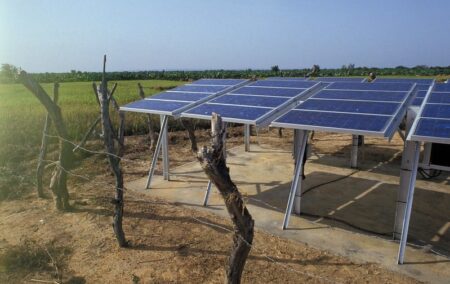South Africa is now in its second state of disaster since 2020, but for the agricultural sector it represents another in an escalating series of trials that cumulatively challenge the future of the sector. This is as much a danger to the country as a whole – to its food security and its export earnings – as it is to individual farming operations.
Prominent figures in commercial agriculture have turned to the media to highlight just how damaging the power crisis is to farming. As I’ve said previously, farming is a high-tech business, as reliant on a steady source of power as any office-block or factory. Agri SA Chief Executive Christo van der Rheede has warned in a recent piece in the Daily Maverick that ‘Load shedding of electricity could well become load shedding of food for many people if more urgent interventions are not taken.’
Van der Rheede also pointed out that the persistence of the power crisis was placing enormous additional burdens on farmers. Those able to invest in power backup systems – typically generators – are hit hard by the cost of diesel.
Bear in mind too that certain farming operations – think of dairies, for example – are simply not possible without power.
And it’s not only the food supply that’s at stake, but also some not inconsiderable export revenue (itself under pressure from rickety infrastructure), and processing industries elsewhere in the value chains. Failings on farms will reverberate far beyond farm gates.
As a prominent agricultural economist said to me in a private exchange: ‘We are in crisis.’
So, what can be done?
In this environment, farmers need to seek whatever relief may be available. One obvious avenue would be in granting farmers exemption from municipal rates bills. Section 15 of the Municipal Property Rates Act of 2004 explicitly makes provision for relief from rates to cushion against exceptional hardships. One such set of circumstances explicitly mentioned is a State of Disaster.
The relevant section reads:
(2) When granting in terms of subsection (1) exemptions, rebates or reductions in respect of owners of categories of properties, a municipality may determine such categories in accordance with section 8(2). and when granting exemptions, rebates or reductions in respect of categories of owners of properties, such categories may include-
(a) indigent owners;
(b) owners dependent on pensions or social grants for their livelihood;
(c) owners temporarily without income;
(d) owners of property situated within an area affected by –
(i) a disaster within the meaning of the Disaster Management Act 2002 (Act No. 57 of 2002); or
(ii) any other serious adverse social or economic conditions.
The legal framework to do this is thus already in place, and a municipality ‘may’ accede to a request for exemption. The circumstances in the country match the provisions set out in subsection (d). The country is under a State of Disaster and it’s hard to argue that we are facing anything other than ‘serious adverse social or economic conditions’. Indeed, the latter justifies the former.
For farmers – as indeed for many others, privately and in the course of their work – there are also the investments in generators and the cost of fuel to run them. These are a consequence of the failure of the public grid. And paradoxically, they may add to the value of the property for rates purposes.
Interestingly, rates exemptions have not been used widely as a relief measure. It is, however, a simple and efficient mechanism to assist South Africa’s hard-pressed farming community. It would not require any new legislation or institutions, merely forgoing a portion of the revenue that might have been collected. This is of course no trivial sacrifice for the state; but given the range of choices facing the country, it’s a necessary trade-off.
Farmers need to get this onto the agenda by lodging applications for rates relief with their municipalities. The Institute will shortly be issuing a call for this. If South Africa’s authorities are serious about bringing the country through its current dire predicament – and securing the basis for rebuilding in future – it’s a crucial bit of strategic help they can extend to the hard-pressed farming community in the present.

